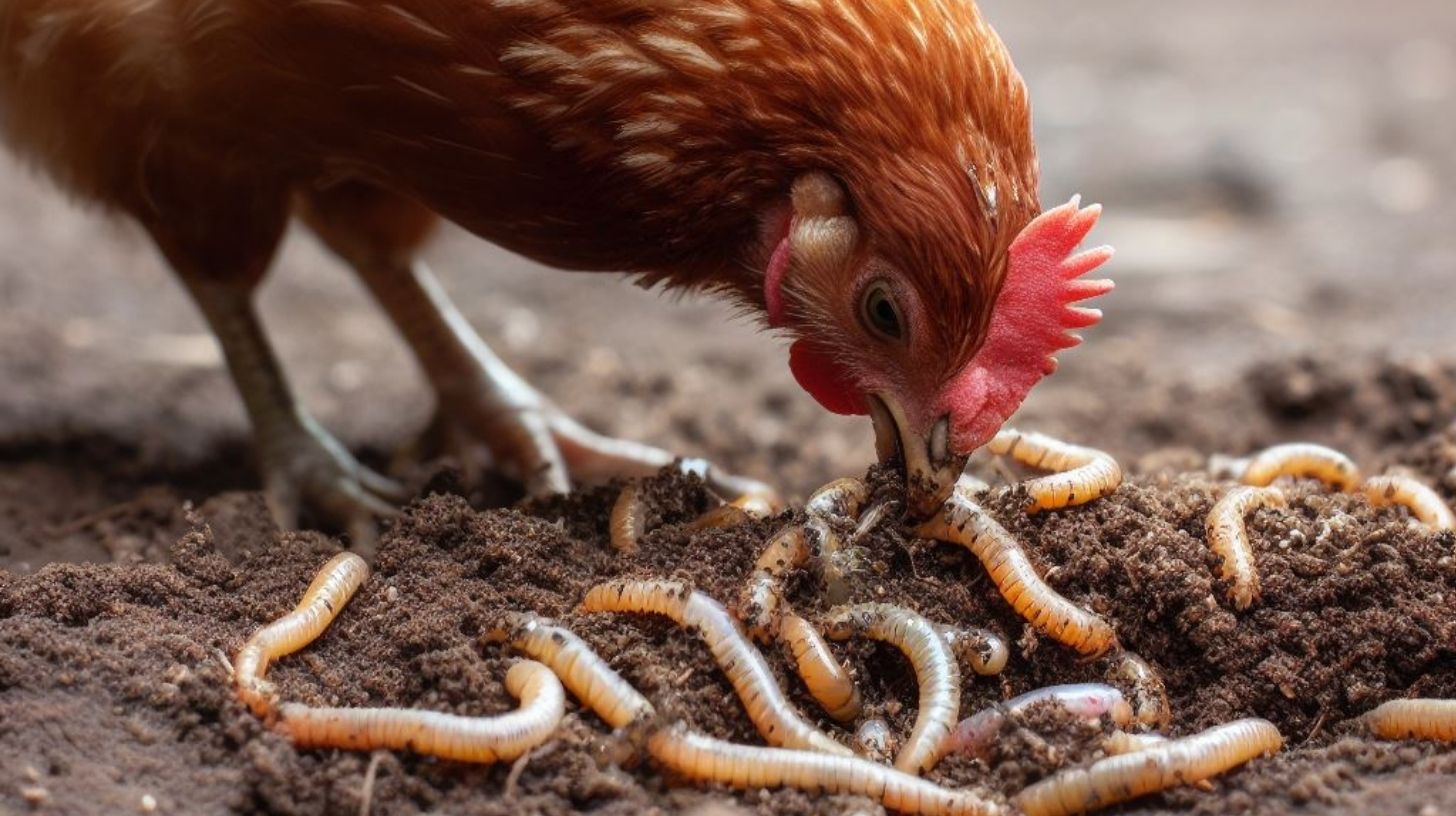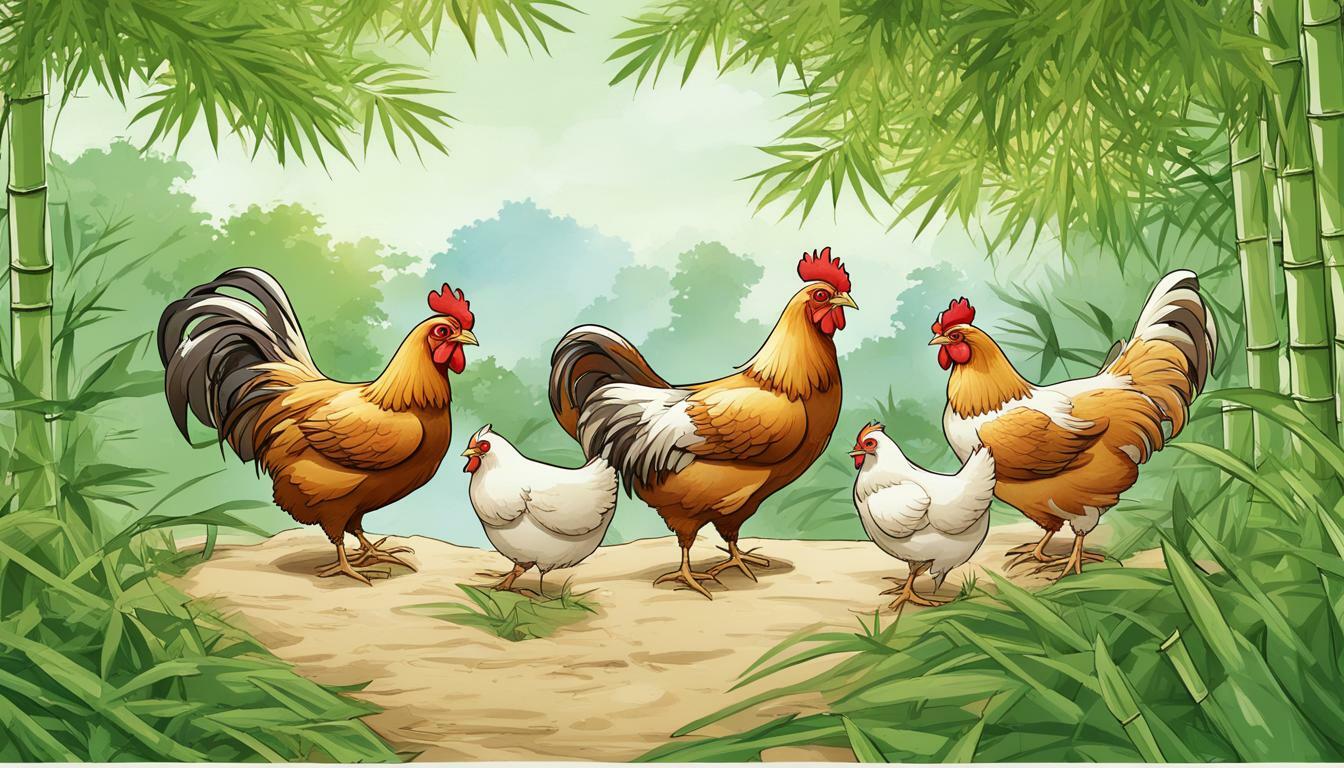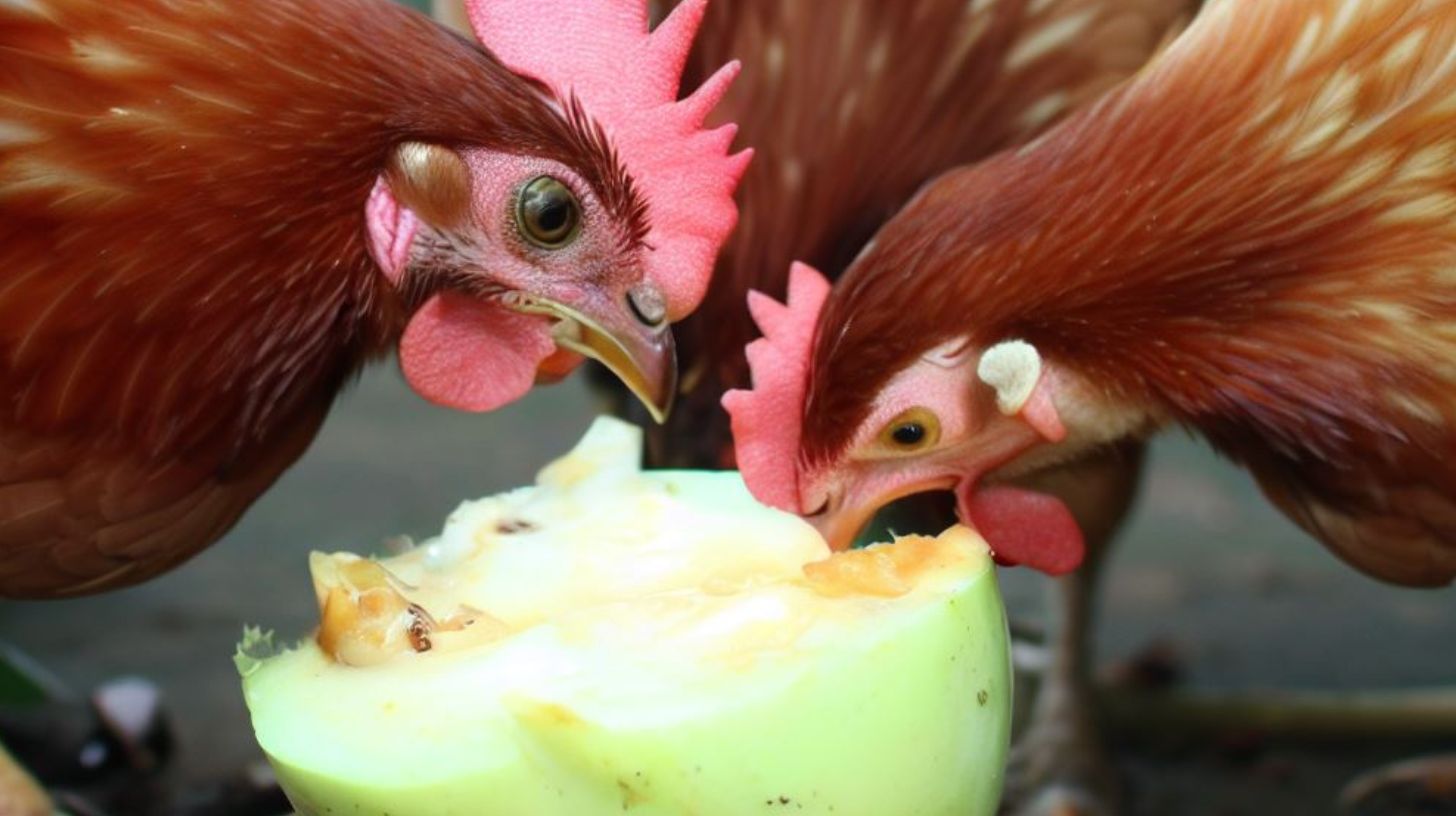Do Chickens Eat Maggots? Benefits and Health Risks

Table of content:
Chickens are omnivores and will eat maggots. Maggots can provide protein and nutrients to chickens. However, there are some concerns about potential health risks.
Key takeaways:
- Chickens are omnivores and will eat maggots opportunistically.
- Maggots can provide a good source of protein and nutrients.
- Consuming maggots in moderation is generally safe and healthy.
- Too many maggots can potentially cause illness or toxicity.
- Maggots may carry bacteria, viruses and parasites.
- Good sanitation and husbandry can help minimize maggot issues.
- Most chicken keepers feel the benefits outweigh the risks.
Why Do Chickens Eat Insects Like Maggots?
Chickens are omnivores, meaning they eat both plant and animal matter. Their natural diet consists of seeds, grains, greens, fruits, worms, grubs and insects. Chickens have retained the instinct to forage and will scavenge and peck for protein sources.
In the wild or free-range settings, chickens will scratch and scavenge through soil, manure and compost looking for bugs, larvae and worms to supplement their diet. Maggots present a convenient protein source that chickens can easily scratch up and consume.
While commercial chicken feed is balanced with protein, vitamins and minerals, chickens have an evolutionary drive to forage. Many chicken keepers feel chickens benefit from the ability to exhibit natural foraging behaviors.
| Protein Source | Crude Protein |
|---|---|
| Dried Mealworms | 49% |
| Maggots | 42% |
| Chicken Feed | 16% – 20% |
Are Maggots Nutritious For Chickens?
Maggots can provide a rich source of bioavailable protein, healthy fats, and essential vitamins and minerals for chickens. Below are some of the top nutrients found in maggots:
- Protein: Maggots contain around 42% protein, providing essential amino acids.
- Calcium: Maggots have high calcium levels for strong bones and eggshells.
- Healthy Fats: Maggots have a fat profile high in lauric acid, oleic acid and palmitoleic acid.
- Vitamin B12: Maggots are an excellent source of vitamin B12 for energy and red blood cell health.
- Iron: Maggots provide heme iron which is easily absorbed by chickens.
- Magnesium: Maggots contain high levels of magnesium for enzyme function and muscle health.
So in moderation, chickens can gain nutritional benefits from supplementing their diet with maggots.
Are There Any Health Risks With Chickens Eating Maggots?
Consuming maggots is generally safe for chickens but there are some potential downsides to be aware of:
- Bacteria or Parasites: Maggots may harbor pathogens like Salmonella or parasites if they feed on rotten or contaminated matter.
- Maggot Toxicity: Too many maggots could potentially cause toxicity due to excess fat or protein. Moderation is key.
- Internal Parasites: Chickens could ingest parasite eggs that are present in maggots.
- Illness or Impaction: Chickens that eat too many maggots may experience digestive upset, illness or impaction.
To minimize risk, good sanitation, clean water, variety of forage and high-quality feed is recommended. Monitoring chickens for signs of illness and limiting maggot intake is also sensible.
What Do Chicken Keepers Think About Chickens Eating Maggots?
Most chicken keepers view occasional maggot consumption as beneficial and a natural behavior. However, excessive maggot intake does raise some concerns. Below are common perspectives:
- It’s natural for chickens to forage and peck at larvae while scavenging. This fulfills natural behaviors.
- Maggots provide a good supplemental source of protein and nutrients.
- A few maggots here and there is fine but hundreds per day is worrisome. Moderation is key.
- Maggots from manure piles or compost are safer than those feeding on carrion or rotting meat.
- Routine cleaning of coops and runs is needed to limit maggot populations.
- Chickens allowed to free-range have more opportunities to self-moderate maggot intake.
- Close observation of chicken health is advised. Promptly remove sick chickens.
Overall most backyard chicken keepers feel the benefits of pecking at maggots outweigh the small risks involved. Practicing good husbandry and biosecurity is recommended when chickens are eating maggots regularly.
Frequently Asked Questions About Chickens and Maggots
Can chickens get sick from eating maggots?
Chickens can potentially get sick from eating maggots. Maggots may carry Salmonella, E. coli or other bacteria that can cause illness. Maggots from rotting animals may carry more pathogens.
Should I be concerned if my chickens eat maggots?
In moderation, maggot consumption is a normal and healthy chicken behavior. But excessive intake of hundreds a day could cause impaction or illness. Monitor to make sure it stays sporadic.
What are the benefits of chickens eating maggots?
The main benefits of chickens eating some maggots are the supplemental protein, healthy fats, vitamins and minerals they provide. It also allows chickens to exhibit natural foraging behaviors.
Are maggots a good source of protein for chickens?
Yes, maggots can be an excellent source of protein for chickens providing amino acids for growth and production. Maggots contain around 42% protein compared to 16-20% in standard chicken feed.
Should I feed maggots to my chickens?
You don’t need to purposely feed maggots. Allowing chickens to free range and forage will provide some natural. But you can offer dried mealworms for supplemental protein.
Conclusion
For chickens, eating maggots is a natural behavioral instinct and provides nutritional benefits. Consuming a few here and there while scavenging is perfectly normal and healthy.
However, excessive consumption could potentially cause toxicity or illness. Moderation is advised, along with keeping coops clean and monitoring chicken health. Overall, most chicken owners feel sporadic maggot ingestion while foraging is beneficial, outweighing the minor risks involved.
Welcome. I’m Adreena Shanum, the proud owner of this website, and I am incredibly passionate about animals, especially poultry. I founded adreenapets.com as a labor of love, stemming from my desire to share my knowledge and experiences with poultry enthusiasts worldwide.




